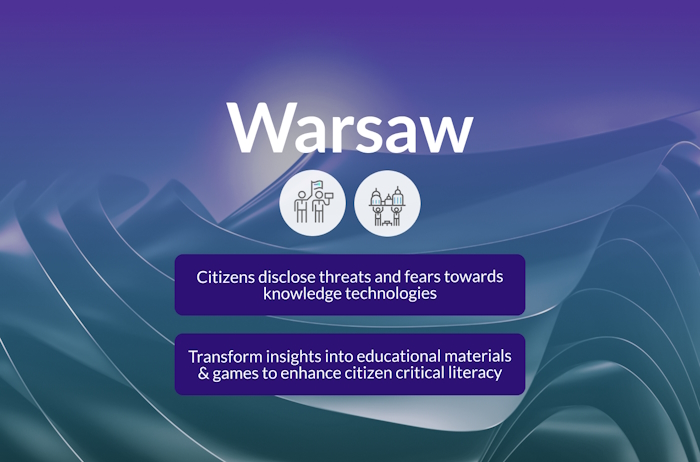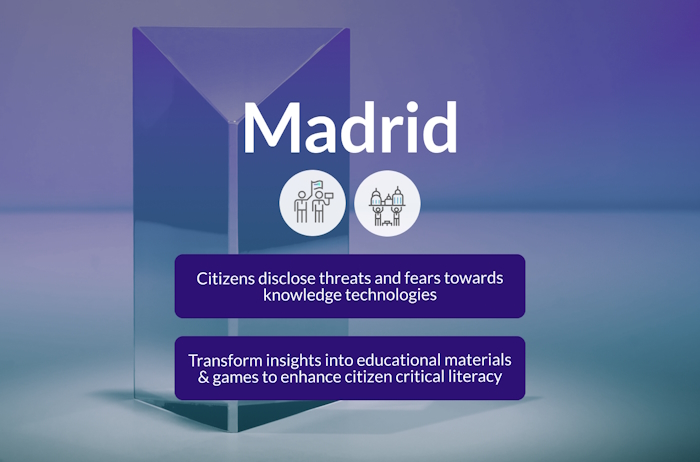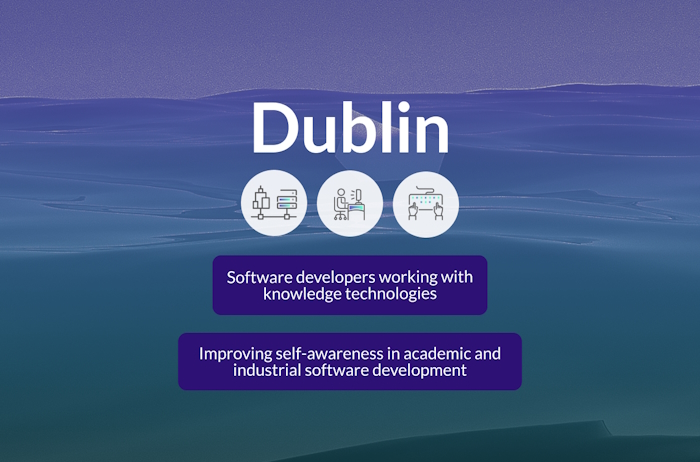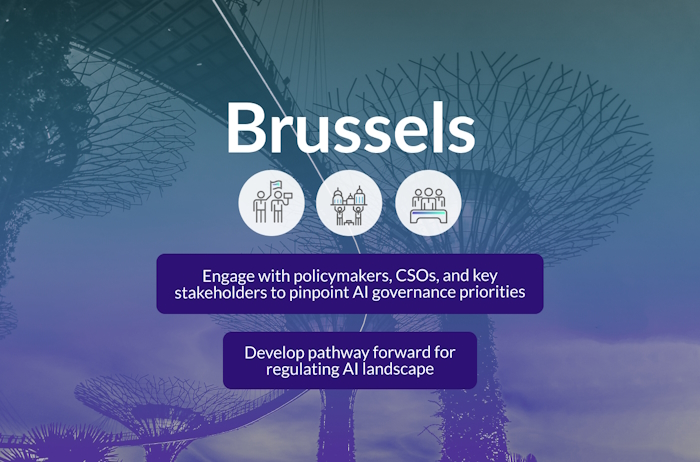The KT4D project is developing a distinctive approach to the emerging tensions between AI and big data on one side, and civic participation and democracy on the other. KT4D will do this by framing its activities under the lens of culture and identity. The consortium is taking a strong user-centric approach and all research will be collected via four case studies. Each use case will be hosted in a different city and this is to allow the project to test the outputs in different contexts as each city has its own cultural norms, language, and expectations, engaging a range of stakeholders (policymakers, citizens & CSOs and software developers) to solicit information based on their interests and role within the community.
Specifically, the Brussels Use Case is centred around engagements with core stakeholder groups to identify central questions underlying AI governance, emerging priorities, & how European policymakers should regulate AI democratically. The Madrid & Warsaw Use Cases take a qualitative approach to identify citizen threats and fears towards knowledge technologies, and develop educational materials and games to enhance critical literacy & overcome problems in democracy in relation to technology. The Dublin Use Case focuses on interactions with software developers working in AI and Big Data to improve their awareness of the impact of their design tools, and processes on democratic principles to ultimately ensure civic participation and avoid ethical repercussions.









